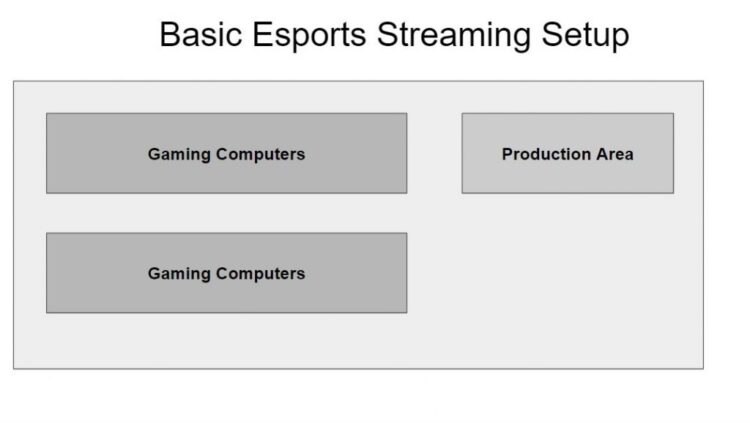If you’re planning on hosting an online tournament game, it can be a daunting task. From ensuring the rules are set up correctly to finding enough players and ensuring everyone has a good experience, there’s a lot of work to do. Thankfully, with careful preparation and planning, hosting an online tournament game doesn’t have to be overwhelming. Below are some tips for hosting an online tournament that can help make your event go as smoothly as possible.
Preparing With Adequate Time
An online tournament game requires a lot of preparation for a successful event. Give yourself time to plan and organize the tournament, as last-minute changes can be challenging to manage during the event. Ensure you have all the information ready, such as rules, format, and registration details. Additionally, check with your internet provider or hosting platform if any technical requirements need to be met. Finally, communicate all these details with your participants beforehand so they know what to expect on the tournament day.
Setting Rules And Regulations

Establishing clear rules and regulations when hosting an online tournament game would be best. This will ensure that everyone is on the same page and prevent any disputes from arising during the event. Start by setting up parameters for each game, such as time limits, scoring methods, and penalties for rule violations. It’s also essential to specify details like how teams can communicate with each other during the event or if there are any restrictions on software usage.
You should also create a policy document outlining all your rules and expectations before the tournament begins to ensure fair play among contestants. You may need to set up rules for any prizes or rewards for the top finishers and any particular circumstances that may come up during gameplay.
Setting Up A Communication System
A reliable communication system is essential when running an online tournament game. Ensure participants receive the correct information regarding contacting each other during the event. Make sure you establish multiple channels for players to communicate with each other, such as a dedicated chat room or message board. It would be best to create a schedule for when and how often communication is allowed, so players have enough time to strategize. You should also provide contact information for organizers if contestants have any questions or issues during the tournament. Additionally, set up automated notifications to update everyone on significant developments before and after the event.
Offering Prizes And Rewards

Offering prizes and rewards is a great way to add excitement and motivation to an online tournament game such as online poker. The top finishers can get cash awards, gift cards, or other tangible objects as prizes. This will foster a competitive environment and motivate players to give the competition their all. It would help if you also considered offering consolation prizes for those who still need to reach the top ranks, such as exclusive access to content or digital goods. Additionally, you can provide discounts on future tournaments or merchandise as incentives for returning players.
Choosing The Right Teams
Selecting teams can be a tricky process when hosting an online tournament. You want teams that have skill levels that are evenly matched so that they can provide each other with good competition. Start by looking into team reputation and performance before inviting certain groups to participate in your tournament. You should also factor in any qualifications or requirements specific to your game, such as age or gender restrictions. Ensuring all teams have the necessary resources and equipment, such as gaming systems or reliable internet connections, is also essential. Additionally, consider selecting players from different geographic regions so that they can experience playing against opponents from other parts of the world.
Scheduling The Tournament

Scheduling an online tournament game is essential; this will enable you to develop a program that suits everyone. Consider variables like the number of attendees, the allotted time, and the necessary resources when establishing the schedule. Specify how long each round should last so players can plan their strategies accordingly. You should also provide plenty of breaks between games to give teams time to rest and strategize. When creating the schedule, keep it flexible enough to accommodate any unforeseen issues or technical difficulties that may arise.
Additionally, provide players with a warning when significant changes are made so they have time to adjust their plans if necessary. Finally, ensure ample time at the end of the tournament for winners to be announced and prizes to be distributed.
Setting Up A Bracket System
Establishing a bracket system for your tournament will allow players to track their progress throughout the competition easily. Each team will face one opponent until only one stands in the single elimination bracket system, which begins with all the teams lined up. As they advance through the tournament, teams are paired against opponents with similar records or rankings. As a result, players may easily keep track of their positions and opponents for the following round.
It also makes it simpler for viewers to follow the action online. Further, you can set up submissions so players can submit replays of their matches for review after every round.
Monitoring The Tournament

It’s critical to be present during the entire tournament duration so that any issues can be addressed immediately. It is essential to address any technical difficulties immediately so players can keep playing without interruption. Players should also be given clear instructions on reporting cheating or unruly behavior and providing evidence if necessary. Finally, ensure that all matches are covered by someone who can give feedback so players can accurately review their performance. Remember that monitoring an online tournament game may require extra support staff depending on its size and complexity. Hiring experienced staff or bringing in a referee are both excellent ways to help guarantee an enjoyable experience for everyone.
Final Thoughts
All these steps should be taken to ensure your online tournament is successful and enjoyable for all participants. You can create a memorable experience that everyone involved will cherish with careful planning and preparation. Remember to prioritize safety and fairness when organizing your tournament, and have fun! Good luck hosting a fantastic tournament!
 Hi Boox Popular Magazine 2024
Hi Boox Popular Magazine 2024



